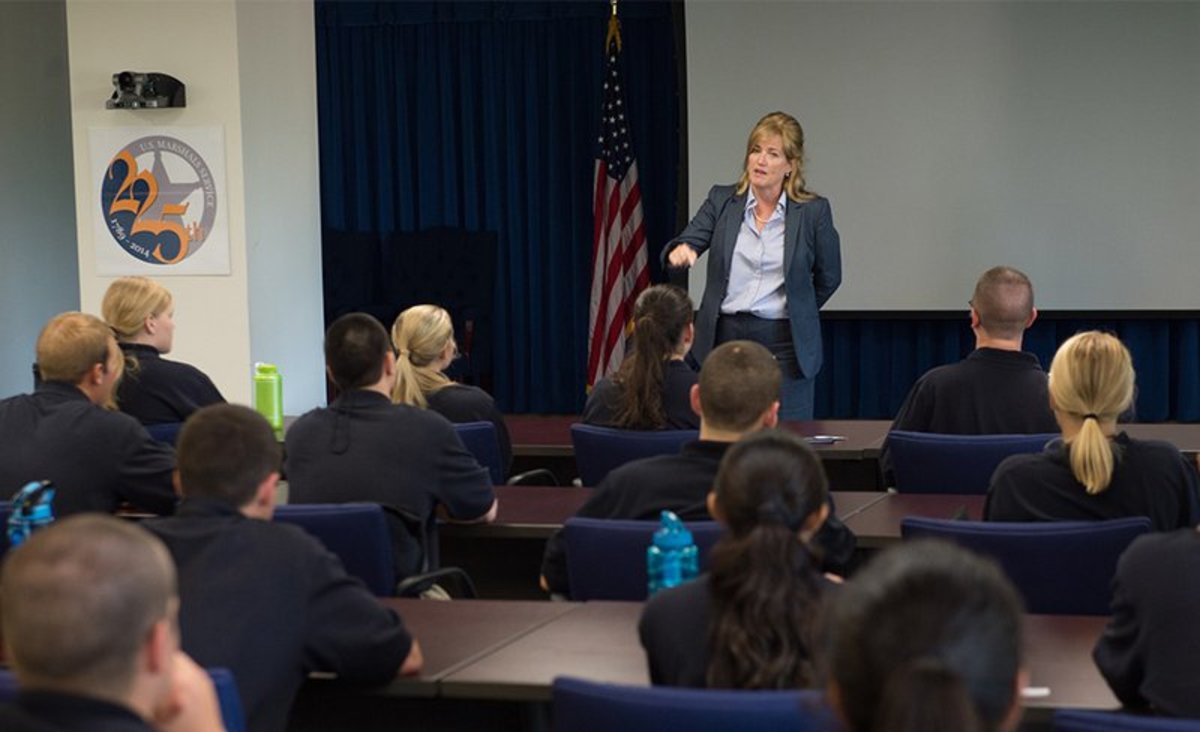
It was announced earlier this week that a significant group of prominent Bitcoin companies, individuals and institutions have united in a “Blockchain Alliance.” This alliance will serve as a resource for law enforcement to help combat criminal activity involving bitcoin and the blockchain, and has so far engaged with the Department of Justice (including the FBI and the U.S. Marshals Service), the U.S. Secret Service, Immigration and Customs Enforcement, Homeland Security Investigations and the Commodity Futures Trading Commission.
However, the Blockchain Alliance was not welcomed by the entire community.
One of the fiercest opponents of the initiative has been Bitcoin Foundation Executive Director Bruce Fenton. Shortly after the Blockchain Alliance was announced, Fenton took to Internet
forums
and Twitter
to voice his concern about the industry’s outreach to law enforcement.
Speaking to Bitcoin Magazine, Fenton explained why:
Bitcoin's relative anonymity has obviously led to it being used for criminal purposes. Don't you consider that a problem that needs solving?
First off, I challenge the notion that the American government has an absolute and irrefutable right to know all financial information and private records of every person within our borders. This is a relatively new idea, and it's a very bad one. Some things are just not their business, and the fact that I'm a little afraid to say that out loud shows how sad our current state is.
As for criminal activity, note that something being a crime is not always a measure of morality. In some countries right now being gay is a criminal act. Even in the United States we once had segregation mandated by law. “Aiding a runaway slave” was once a crime... Would we have wanted to “partner with law enforcement” to track the blockchain for purchases made by escaped slaves?
Today we have laws related to asset forfeiture and federal prosecution of crimes which voters in states decided to decriminalize. These are actions by law enforcement that many citizens feel are immoral.
But Bitcoin can
also be used for criminal purposes that we probably all agree are undesirable. Extortion comes to mind.
Sure, Bitcoin makes some bad things easier to do -- just as do shoes, phones and the Internet. But it's unwise to punish technology and innovation rather than the actual harmful actors.
The Blockchain Alliance is established exactly to help law enforcers make this distinction...
But taking care of these bad actors is the responsibility of the law enforcers, not that of the innovations or the industry. Cars make it far easier for criminals to escape than by foot, but the technology of the motor vehicle and its industry has no responsibility for this.
The job of innovators is to innovate, not to catch those whom the state deems criminal. The job of law enforcement is to deal with new technology as best they can without harming or interfering in the lives of peaceful people who have harmed no other.
The Blockchain Alliance has no intention to conduct blockchain analysis, blacklisting, or anything like that. It's just a forum where law enforcement can ask questions. Why do you consider this such a big deal?
Would the Blockchain Alliance be willing to put in writing a set of conditions under which they would break off ties with law enforcement? If not, then their stated intent is worthless.
Essentially every time any industry has had experiences with government which turned out to be destructive, it started with good intent. The Bitcoin community's engagement with the New York Department of Financial Services, and the resulting BitLicense, is actually a good example of that.
These government organizations have poor track records and continually seek to expand authority. We even have blatant violations of the Constitution such as those of the NSA exposed by Edward Snowden. The very same agencies who seek to capture Snowden are now partners of the Blockchain Alliance...
Law enforcement will, eventually, figure Bitcoin out with or without the Bitcoin Alliance. Why not help them in the process, and build up some goodwill among regulators?
The job of law enforcement is not to figure new things out, not to be our friend, not to determine right or wrong, nor even to craft new laws or listen to logic -- but to follow orders. Even if these orders flow from protectionist laws created by corrupt bureaucrats. And even if the banks and other special interests push for laws giving them a further competitive advantage over Bitcoin.
What about Bitcoin's image problem? Bitcoin is often seen as the currency for criminals, at least among many regulators...
We seem to forget that this is our country. The regulators are supposed to work for us. I challenge the notion that they are “serving the public” here, unless they can produce evidence that a large number of public citizens are concerned about Bitcoin technology. They aren't. No college students and grandmothers are lining up outside the doors of elected officials telling them that something must be done about “the scary blockchain.” Citizens are much more concerned about jobs, innovation and a competitive economy.
I believe we should first and foremost educate the public. Aside from educating citizens, we can also spend some effort educating lawmakers, preferably elected ones with some accountability rather than the unelected (Benjamin) Lawsky types.
But most importantly, we should take a page from the playbook of Uber and build something that's loved by millions... then when the fat wrinkled hands of bureaucrats are raised with a signal to stop, the public collectively shrugs and ignores them.
As Bitcoin becomes more popular, not in the least among criminals, the trend of more and stricter regulation will probably continue. If you care about privacy, fungibility, censorship resistance, and these sorts of things, wouldn't it make sense to focus on protocol-level solutions, rather than to fight regulation and law enforcement?
Definitely. The ultimate solutions are those of a technical nature. My goal in speaking about this is not to fight law enforcement or even regulation... but to simply question why it could make sense to work so hard to help law enforcement with a dubious mission.
I respect the members of that group a lot, many are good friends. I hope I'm wrong and it turns out great. Meanwhile, let's all work together to build something amazing that changes our world for the better.
Photo Office of Public Affairs / Flickr (CC)










